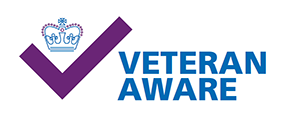Our Services A - Z - Ward 4E - Critical Care Unit
About the service
Ward 4E - Critical Care Unit (ICU)
The Critical Care Unit (ICU) is located on Level 4, Whiston Hospital
Intensive Care Units (ICU), also called the Critical Care Department, look after patients whose conditions are life-threatening and need constant, close monitoring and support from equipment and medication to keep normal body functions going. Intensive care units in the United Kingdom are run and staffed by specialists trained in intensive care. They have higher levels of staffing, specialist monitoring and treatment equipment only available in these areas and the staff are highly trained in caring for the most severely ill patients. Senior staff are closely involved in the hour by hour management of patients by the bedside and all staff are especially trained to care for the most unwell patients.
Some patients are in an ICU for shorter periods of time than others, depending on the extent of their illness or injury. As patients get better, they are transferred to a general ward somewhere else in the hospital.
Once a patient is admitted to the unit, the intensive care team will manage the care of the patient in consultation with the original team that admitted the patient to the hospital and any other specialists that they think can help to aid the patient's recovery. The intensive care doctors and nurses will give the best overview and general update on the patient, but they may sometimes refer relatives to the specialist teams for discussion of certain aspects of care.
Once a patient has recovered and is well enough to be transferred to the ward, their care will be handed over to the ward team. Our outreach intensive care team may continue to visit patients on the ward and we also have an internationally recognised rehabilitation service for specific patients who have had long stays and been severely unwell.
Infection control is very important in intensive care as patients who are very unwell are very susceptible to infection, and staff and visitors are required to comply with local hygiene policies.
The above text has been adapted from the Intensive Care Society (UK) website, that has further information for patients and relatives.
Sue Frodsham - Lead Nurse, Manager, Critical Care Unit
Overall responsibility for operational, personnel and financial management of the Critical Care Unit.
- Email: Susan.Frodsham@sthk.nhs.uk
- Tel: 0151 430 1490
- Our Consultants
Dr Ascanio Tridente - Consultant in Intensive Care Medicine and General Internal Medicine
Email: Ascanio.Tridente@sthk.nhs.uk
Tel: 0151 430 1421
- DMS (Hons), MRCP(UK), MSc CT, EDIC, FICM
- Interests: Research, Echocardiography, Information Technology
Dr. Chamene Welhengama – Consultant in Intensive Care Medicine & Anaesthetics
- Email: Chamene.welhengama@sthk.nhs.uk
- Tel: 0151 290 4171
- Qualifications - MBChB, FRCA, FFICM
- Roles – Clinical Governance, Equipment, Consultant Rota
Dr Diane Murray - Consultant in Intensive Care Medicine & Anaesthetics
- Email: Diane.Murray2@sthk.nhs.uk
- Tel: ext. 1421
Dr Nick Bolton - Consultant in Intensive Care Medicine & AnaestheticsEmail: Nicholas.Bolton@sthk.nhs.uk
- Tel: 0151 430 1581
Dr Anthony Cochrane - Consultant in Intensive Care Medicine & Anaesthetics
- Email: Anthony.Cochrane@sthk.nhs.uk
- Tel: 0151 430 7571
Dr Louisa Anderson - Consultant in Intensive Care Medicine & Anaesthetics
- Email: Louisa.Anderson@sthk.nhs.uk
- Tel: ext. 1421
Dr Ed Hughes - Consultant in Intensive Care Medicine & Anaesthetics
- Email: Edward.Hughes2@sthk.nhs.uk
- Tel: ext. 2487
Dr Martin Udberg - Consultant in Intensive Care
- Email: Martin.Udberg22@sthk.nhs.uk
- Tel: ext. 4856
Dr Noah Moran - Consultant in Intensive Care Medicine & Anaesthetics
- Email: Noah.Moran@sthk.nhs.uk
- Tel: ext. 7915
Dr Ganesh Hanumanthu - Consultant in Intensive Care Medicine & Anaesthetics
- Email: Ganesh.Hanumanthu@sthk.nhs.uk
- Tel: ext. 2394
Dr James O’ Connor - Consultant in Critical Care Medicine
- Email: james.ocnnor2@merseywestlancs.nhs.uk
- Tel: ext. 5466
- Senior Team
Sue Frodsham - Lead Nurse, Manager, Critical Care Unit
Overall responsibility for operational, personnel and financial management of the Critical Care Unit.
- Email: Susan.Frodsham@sthk.nhs.uk
- Tel: 0151 430 1490
Senior Nursing Team
Skilled and experienced Critical Care nurses, with responsibility for a team of nursing staff and the day to day operational management of the unit
Dena Price
- Email: Dena.Price@sthk.nhs.uk
Jane Bennett
- Email: Jane.bennett@sthk.nhs.uk
Julie Kysh
- Email: Julie.Kysh@sthk.nhs.uk
Rebecca Barrow
- Email: Rebecca.Barrow@sthk.nhs.uk
Cath Swann
- Email: Cath.Swann@sthk.nhs.uk
Jackie McDonnell
- Email: Jackie.McDonnell@sthk.nhs.uk
Carl Ryland
- Email: Carl.Ryland@sthk.nhs.uk
Julie Kysh
Shirley Leyland
Bev Riley - Senior Sister/Practice Educator
A skilled and experienced critical care nurse with responsibility for a team of nursing staff. The practice nurse educators overarching responsibility is to manage the education and development service within the critical care unit.
Provides a service to the following staff :
- Registered nurses new to the critical care unit who undertake the Step 1 national critical care competency programme (link step 1 comps) and 6 week induction programme
- Current registered nurses where clinical support and training is provided to meet the requirements of the step 2 and 3 national critical care competency programme
- Health care assistants, supporting the apprenticeship programme and health care assistant competencies
- Pre-registration student nurses and other multi profession learners who have opportunities to observe care of the critically ill patient and shadow the medical emergency team and research nurses based in critical care.
Trust Support
The practice educator assists in the delivery of tracheostomy training and ALERT course for Trust staff.- Email: Beverly.Riley@sthk.nhs.uk
- Tel: 0151 430 1842
- Specialist Nurses
John Elmore - Nurse Consultant, Critical Care Outreach and MET Nurse Lead
The Nurse Consultant for Critical Care/MET performs an advanced autonomous clinical role demonstrating the highest level of nursing practice. The Nurse Consultant works across professional boundaries, leading, developing, innovating, researching and changing clinical practice in order to ensure effectiveness and quality for critically ill patients wherever they are located.
- Email: John.Elmore@sthk.nhs.uk
- Tel: 0151 430 2409
Bev Riley - Senior Sister/Practice Educator
A skilled and experienced critical care nurse with responsibility for a team of nursing staff. The practice nurse educators overarching responsibility is to manage the education and development service within the critical care unit.
Provides a service to the following staff:
- Registered nurses new to the critical care unit who undertake the Step 1 National critical care competency programme (link step 1 comps) and 6 week induction programme
- Current registered nurses where clinical support and training is provided to meet the requirements of the step 2 and 3 national critical care competency programme
- Health care assistants , supporting the apprenticeship programme and health care assistant competencies.
Pre-Registration student nurses and other multi profession learners who have opportunities to observe care of the critically ill patient and shadow the medical emergency team and research nurses based in critical care.
Trust Support
The practice educator assists in the delivery of tracheostomy training and ALERT course for Trust staff.- Email: Beverly.Riley@sthk.nhs.uk
- Tel: 0151 430 1842
Emma Whitby - Rehabilitation Sister
The Rehabilitation Sister is responsible for assessing, advising, planning and evaluating the care of patients recovering from critical illness following discharge from critical care. The aim of the role is to facilitate physical and psychological recovery and rehabilitation in the long term. The Rehabilitation Sister will play a role in education in both the formal and the informal setting of professional groups, particularly in the acute setting to facilitate the development of high standards of care.
- Email: Emma.Whitby@sthk.nhs.uk
- Tel: 0151 430 2382
Kerry Pennington-Haigh - ICNARC (Intensive Care National Audit & Research Centre) Clinical Nurse Specialist
ICNARC Clinical Nurse Specialist responsible for ICNARC – Case Mix Programme involving :
- Data collection
- Data extraction
- Critical analysis
- Dissemination of information at unit , trust , network & national level
- Ensuring accurate collection CCMDS – Critical Care Minimum dataset – measuring unit activity
- Email: Kerry.Pennington@sthk.nhs.uk
- Tel: 0151 430 7683
Karen Shuker - Research Nurse - Critical Care Unit
The research nurse role is to support and manage the research studies undertaken on the critical care unit, working collaboratively with the multi-disciplinary team, assisting the study Principle Investigators and encouraging staff research awareness.
This involves identifying, screening and recruiting research participants by assessing their individual physical, psychological and social suitability, all within the remit of GCP (Good Clinical Practice) and Research Governance.
I am responsible for obtaining informed consent, collating all relevant research data, maintaining accurate input onto the research databases and following up participants as required.
Current studies on Critical care: GenOMICC, UK-ROX, BLING III, SIGNET, PIM-COVID and Recovery
I also work generically within the trust on a variety of other studies.
- Email: karen.shuker@sthk.nhs.uk
- Tel: 0151 430 1813
- Allied Health Professionals
Critical Care Physiotherapy Team
We are a team of Physiotherapists that provide assessment and treatment to patients on Critical Care. The service is provided over 7 days a week between the hours of 08.00am to 4.00pm
Our aims include
- preventing and treating chest complications (chest infections, pneumonia) using a variety of chest physiotherapy techniques
- Assist with weaning patients from ventilators
- Providing rehabilitation to patients as they recover from critical illness to help build up their strength, balance and improve functional abilities. This is tailored to individual patients needs.
- Prevention muscle tightness/ contractures especially during periods of sedation
- Actively promoting early mobilisation to help prevent/ reduced adverse effects of prolonged bed rest and mechanical ventilation
Naomi Parllaku - Team Lead Physiotherapist
- Email: Naomi.Parllaku@sthk.nhs.uk
- Tel: 0151 290 4987
Sarah Mulvey - Clinical Lead Physiotherapist
- Email: Sarah.Mulvey2@sthk.nhs.uk
- Tel: 0151 290 4987
Dietitian
Patients may be under the care of a dietitian during their stay on ICU. Dietitians help patients meet their nutritional needs and requirements. This could include supplementing an oral intake with specialist drinks and snacks, modified textures of drinks and foods, or managing a feeding tube. They can also provide specialist advice for managing a dietary intake following injury, trauma, or new clinical diagnoses
Jennifer Grimble - Dietitian
- Email: Jennifer.Grimble@sthk.nhs.uk
- Tel: 0151 430 1201
Professional Nurse Advocate (PNA)
The professional nurse advocate (PNA) role promotes restorative supervision to nurses. They will listen, understand challenges and demands of fellow colleagues, which will lead to support and deliver quality improvement initiatives. The PNA will:
- Provide a sanctum for staff to give them time to STOP, THINK & REFLECT
- Provide support based on cognitive, behavioural and a mindfulness approach will help reduce stress, ease anxiety and the feeling of burnout
- Encourage staff to be more open to communicating their feelings, encouraging each other to talk about challenges
- Create a feeling of belonging and well being.
Kirsty Bibbey - Professional Nurse Advocate (PNA)
- Email: Kirsty.Bibbey@sthk.nhs.uk
- Tel: 0151 430 1581
Leanne Anslow - Professional Nurse Advocate (PNA)
- Email: Leanne.Anslow@sthk.nhs.uk
- Tel: 0151 430 1581
Occupational Therapy
Occupational Therapy service for Critical care patients is being developed in line with NICE and ICS guidelines. We aim to provide a gold standard service for the benefit of our patients, who are at a very critical phase of their life and require best possible professional support to recover. Our OT’s use their expertise and experience to improve patient outcomes by preventing or reducing physical, emotional and cognitive complications that arise from critical illness.
We advocate for early intervention to address both physical and cognitive rehabilitation in critical care, which includes a comprehensive clinical assessment for patients at risk of physical and non-physical morbidity. Occupational Therapists in our unit have special expertise in dealing with non-physical morbidity, which can include impaired cognition, delirium and psychological distress which can often be present as a result of critical care interventions such as sedation, sleep deprivation and alcohol/drug withdrawal.
Our goal is always to make a long-term and tangible difference in patients’ daily lives. We do this by helping each patient participate in the day-to-day activities that they find most meaningful. These basic building blocks of daily life can become difficult after an injury, disability, or illness and occupational therapy professionals can help people develop the skills to participate in these activities with confidence.
Occupational therapy is where science, creativity and compassion collide.
Shubhra Shiwangi - Clinical Lead OT
- Email: shubhra.shiwangi@sthk.nhs.uk
- Tel: 0151 290 4987
- Useful Links
Websites
BRAKE - The Road Safety Charity
Brake is a road safety charity dedicated to stopping deaths and injuries on roads and caring for people bereaved and injured on the road.Cruse Bereavement Care
Cruse Bereavement Care exists to promote the well-being of bereaved people and to enable anyone bereaved by death to understand their grief and cope with their loss. The organisation provides counselling and support. It offers information, advice, education and training services.
DIPEx - Database of Individual Patient Experiences (http://www.dipex.org/intensivecare)
An Oxford based registered charity. It is a database of audio, video and transcript of interviews with patients experiencing a particular illness or health problems which includes a module on intensive care.Headway
A national charity that supports people with a brain injury and those who care for them.ICNARC - Intensive Care National Audit and Research Centre
ICNARC was set up in 1994 as a charitable company limited by guarantee. It is a sister organisation of the Intensive Care Society (ICS) the professional organisation for doctors working in critical care.ICUsteps - Intensive Care Unit Support Team for Ex-Patients
This charity is a support group set up by former intensive care patients and family members based in Milton Keynes. They hold regular drop-ins and offer support for other ex-patients or family members to come along and talk about their experiences and rehabilitation. The web site includes ex-patients and family members own experiences, offers a bulletin board and a contact page. It also gives the dates of drop-in events.Patient UK
An independent service leading to high quality UK internet health sites. - Patient Leaflets
Title - Intensive Care Rehabilitation Manual
Description - When you have been ill, it can take quite a while to get back to feeling your normal self. Exactly how long this will take will depend on things like the length of time you have been ill, whether you have lost a lot of weight and whether your illness means that you will have to change some aspects of your lifestyle. - Visiting
To access visiting times for wards across our hospitals, please click here for more information.
Please note, visiting can be restricted or suspended with immediate effect if there are any safety concerns due to a spread of infection on our wards or in our communities.
To confirm that the ward you are planning to visit is currently open, please call our main number tel: 0151 426 1600
- Personal Belongings
On admission we provide all essential items. As patient’s care improves personal items may be brought in.
- Meals and Drinks
Patients meals and drinks are provided as required.
Special Diets
All dietary requirements will be catered for.
If you are on a special diet or therapeutic diet, the ward staff will contact our hospital dietician to arrange this for you. The dietician will also be available Monday-Friday to provide specialist information regarding your diet.
- Safety
The critical care unit operates an intercom system for attending visitors. Once granted access via the intercom, please take a seat in the waiting area where staff will attend and allow access onto the unit.
Visitors must remove outside coats for infection control purposes.
Other infection control precautions as instructed by Nurse in Charge.
No hot drinks at bedside and the use of mobile phones and taking photographs is not allowed.
- Discharge from the Ward to Home
Medications: If you require medications to take home with you, these will be given to you by the ward staff before you leave. Please don't leave without them. It can take a few hours for the Hospital Pharmacy to prepare your medications, so bear this in mind when you arrange a time to leave.
Outpatient appointments: You will be told if an appointment has already been made for you or whether it will follow on in the post.
Transport: Please try to arrange your own transport home from the Hospital. Hospital transport is only available for patients who cannot as a result of their clinical condition use other forms of transport.
- Transferred to Ward
Liaise with Nurse in charge on new ward relating to visiting and protected meal times etc.
- Suggestions, comments or complaints
We aim to make your stay with us as pleasant and comfortable as possible, and strive to provide the highest quality of care. If you or your family have any suggestions or comments, please discuss them with the ward manager or nurse in charge, or you can discuss them (or any complaints) with the Patient Advice and Liaison Service.
Alternatively, please fill our comments and suggestions form available in our wards or download here and hand it to any staff member.
Page last updated on 07th February 2025






